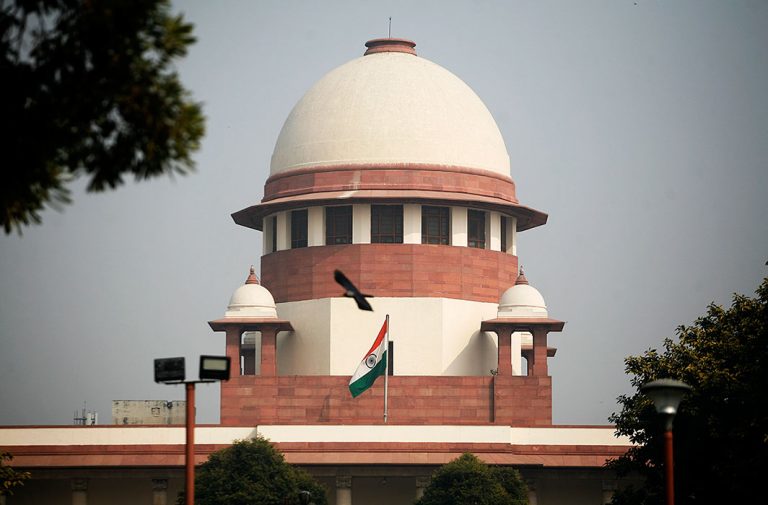
The Supreme Court in a judgment relating to maintenance under domestic violence Act, 2005 held that brother in law can be asked to pay maintenance to widow wife. The Petitioner preferred the leave against an order of Punjab and Haryana High Court wherein the Court upheld the maintenance to the widow wife from brother-in-law. The widow wife had been staying in the ancestral property along with husband who was running a Kirana shop along with his brother which was giving a profit of Rs 30,000 per month. The Trial court initially allowed the interim maintenance to widow wife of Rs 4000 per month and Rs 2000 per month to the child. The same order was upheld by session court and later by the Punjab and Haryana High Court.
Justices D Y Chandrachud and Hemant Gupta while upholding the order of the Punjab and Haryana Court held that Section 12(1) provides that an aggrieved person may present an application to the Magistrate seeking one or more reliefs under the Act. Under the provisions of Section 20(1), the Magistrate while dealing with an application under sub Section (1) of Section 12 is empowered to direct the respondent(s) to pay monetary relief to meet the expenses incurred and losses suffered by the aggrieved person and any child of the aggrieved person as a result of domestic violence. This may include but is not limited to an order for maintenance of the aggrieved person as well as her children, if any, including an order under or in addition to an order for maintenance under Section 125 of the CrPC or any other law for the time being in force.
The apex court further held that the act defines “respondent” means any adult male person who is, or has been, in a domestic relationship with the aggrieved person and against whom the aggrieved person has sought any relief under this Act: Provided that an aggrieved wife or female living in a relationship in the nature of a marriage may also file a complaint against a relative of the husband or the male partner. The judgment further made analysis of 2(s) of the Domestic Violence Act, “shared household” means a household where the person aggrieved lives or at any stage has lived in a domestic relationship either singly or along with the respondent and includes such a household whether owned or tenanted either jointly by the aggrieved person and the respondent, or owned or tenanted by either of them in respect of which either the aggrieved person or the respondent or both jointly or singly have any right, title, interest or equity and includes such a household which may belong to the joint family of which the respondent is a member, irrespective of whether the respondent or the aggrieved person has any right, title or interest in the shared household.
The Court held that the act itself brief out through the amalgamation of few definitions and relevant provisions of DV Act clearly that the respondent is just not restricted to the husband and may include the person included in the domestic affairs at home and accordingly, the maintenance is liable to be paid by the brother-in-law in the case of domestic violence.
—India Legal Bureau

